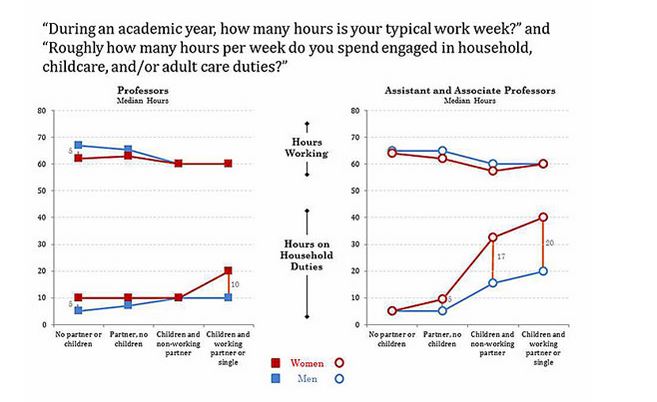You have /5 articles left.
Sign up for a free account or log in.
Female faculty members at Harvard University may be making more progress toward equity with their male counterparts at work than at home.
The university on Wednesday released some results from its periodic study of faculty satisfaction -- and found that 81 percent are either very satisfied or somewhat satisfied.
In some areas, the survey found notable differences by gender -- with significant progress (for men and women, but especially for women) on mentoring, and strong gaps remaining on household duties.
Harvard has not traditionally been known as the most nurturing environment when it comes to boosting the careers of young faculty members, many of whom end up making their careers elsewhere. When the university asked its assistant and associate professors in 2007 whether they had formal or informal mentors, only 35 percent of women and 39 percent of men said that they had them. When surveyed in 2013, 72 percent of women and 60 percent of men reported having formal mentors. In the intervening years, the report said, many Harvard divisions have launched or expanded mentoring programs.
But if Harvard women are now doing better than the men at receiving mentoring, the same can't be said for help at home.
The survey asked how many hours a week Harvard professors at different ranks worked, both on their careers and at home. Men without children or partners work slightly longer hours than do women without partners or children. And men and women with partners and children report working roughly the same number of hours (60), at both the junior and senior faculty ranks.
But where the survey found differences was in the hours worked on household duties, child care and adult care.
Women at the assistant and associate levels who either have a partner who works or are single spend an average of 40 hours a week on such duties. That's twice the number of hours Harvard men in the same circumstances spend. Full professors (who would be likely to have older children) have the same proportional gap. Women who either have a partner who works or are single report spending 20 hours a week on the household, child care or adult care -- while men report spending 10 hours.
What about those who have a partner who does not work? At the full professor level, Harvard men and women report working the same number of hours a week on the household and family (10). But at the associate and assistant level, it appears that the working Harvard female spouse has more home duties than her male counterpart -- 17 hours more a week in fact.





